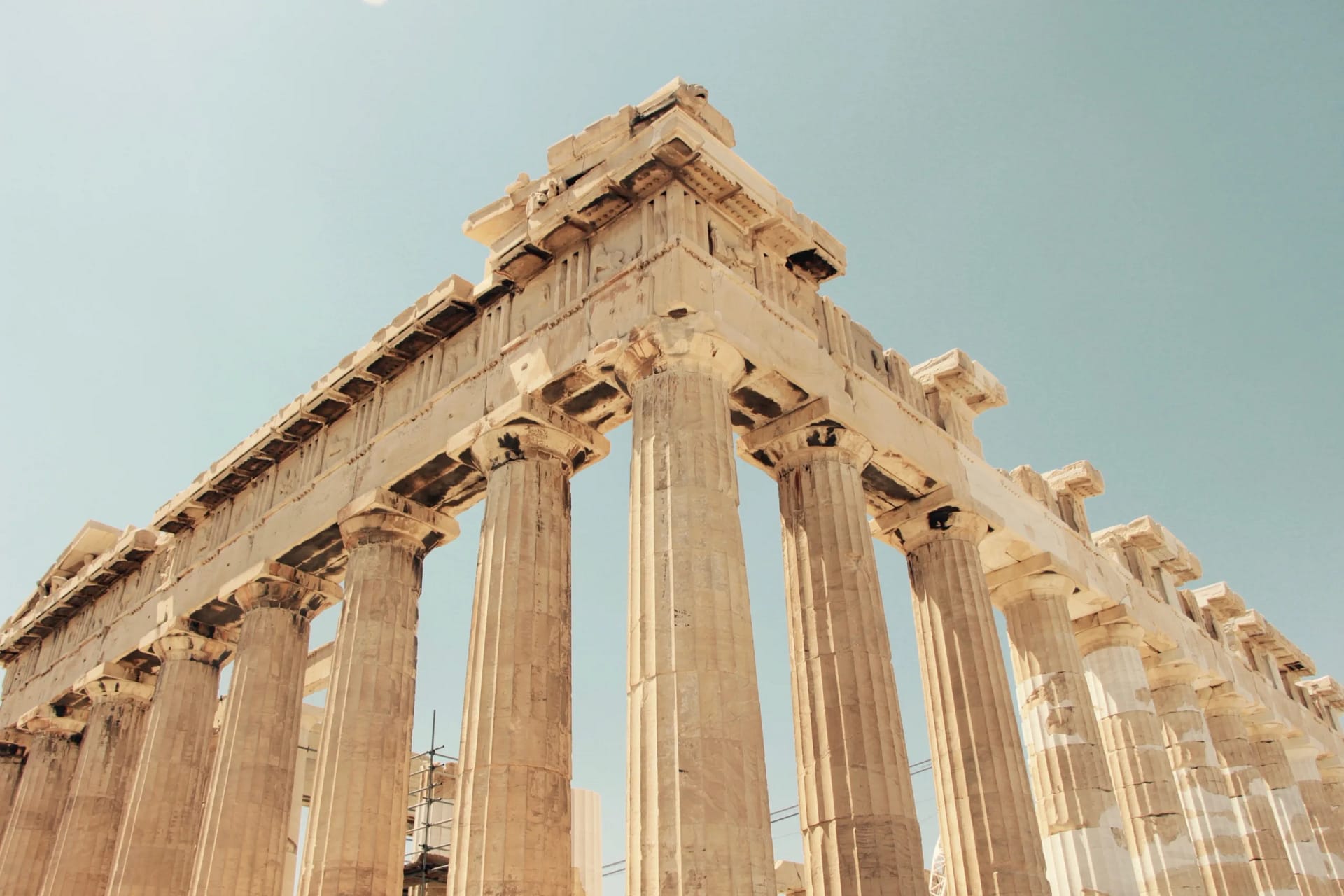History
Throughout their extensive history, the Greek Islands have played host to many civilizations, from the Athenians to the Ottomans. Remarkably, the concept of Greek nationhood, often referred to as “éthnos,” has persevered since antiquity and is firmly rooted in a shared language, religion, and customs. Greece is renowned for its profound and diverse cultural heritage.

Grecian history
- Three different civilizations coexisted in the area throughout the Bronze Age. Cycladic culture (2800–2200).
- Between 2000 and 1450 BC, the Minoans of Crete built extremely elaborate palaces.
- In the Aegean, between 1450 and 400 BC, the Mycenaeans overtook the Minoans. The Mycenaean civilization collapsed when the Sea Peoples started making inroads about 1200–1100 BC.
- In 800-700 BC, the first city-states and their colonies were founded. Athenian democracy was anticipated by the reforms of Statesman Solon in 494 BC.
The Minoan civilization, or the civilization of the island of Crete, is one of the earliest Greek civilizations. It flourished from 3000 to 1100 BC, and its name is attributed to its founder, the ruler of Crete, Emperor Minos. During the Bronze Age, the Minoan civilization was the focus and the center of culture in the regions of the Aegean Sea. At the end of the third millennium BC, or before 1500 BC, the Minoan civilization had already stood out for its expansive palaces, advanced art, and use of writing.
Present-Day Greek Islands

Greece, a nation both democratic and integral to the European Union, has witnessed a significant transformation since the advent of mass tourism in the 1960s and 1970s. Many idyllic villages on its picturesque islands morphed into vibrant tourist hubs during this period. Nevertheless, Greece’s economic journey has been far from stable, marred by a series of financial crises, the most recent of which began in 2009. In response to these challenges, the European Union extended substantial loans, contingent upon implementing stringent austerity measures.
For travelers seeking to explore Greece, it is imperative to recognize that October is a prime month to experience this captivating nation. The climate in Greece during this period is characterized by its temperate nature, with average temperatures hovering around a pleasant 20 degrees Celsius. October also offers the advantage of less crowding at popular tourist destinations. Moreover, flight fares and accommodation costs are notably budget-friendly during this season.
Reasons to choose Greece

Greece has an ideal subtropical climate of long, hot, dry summers, mild, wet winters, and short transitional seasons. The beaches are crowded with tourists in the south from April to November and from May to October to the north. Sunlight comes in abundance, with sea breezes lowering the temperature. Winter comes with a breath of fresh air.
The Weather

Whoever is not fond of Greece’s brilliant climate and about 300 sunny days yearly, where the weather is so lovely for most of the solar cycle? Summer includes minimal humidity, beautiful blue skies, and infrequent rain. A journey to Greece in the early spring or the late fall is calming for northerners living in the frigid north. Then, when the weather is warm, you may enjoy a relaxing swim in the pure blue sea. The daily average temperature might range from 20 degrees in April to 25 degrees in October.
The Islands

About 1,200 to 6,000 islands and islets comprise Europe’s longest sea border with the mainland shore, allowing tourists to enhance their time in Greece. There are 227 habitable islands out of the thousands, each with its personality and distinguishing characteristics. Every island has a distinct history and sense of pride, and its residents are proud to showcase what the island has to offer. In other words, planning an exciting trip to Greece is simple!
Greek Islands as a Source Architecture

The architectural style of the Greek Islands, which reflects a lengthy history of conquest and occupation, is constant only in its variety. Here are a few famous structures to watch for, from cheery pastel-coloured towns to the typical decaying ruins.
In Greece Islands, you will fall in love with those who are Landscape Lovers. So, there you will explore past the beach bars and clubs of Mykonos and Rhodes to the thriving flora and animals found inland and in the sea if you want to become wild in the Greek Islands. Your life will start by learning about Greek culture via numerous activities.
Religious Travelers

People love to visit Greece today for many reasons. The first reason is that they want to know how popular ancient religious pilgrimages were, with the sanctuaries of Delphi and Delos being the most popular sites to visit. They want to learn about sculptures, bas-reliefs, fountains, and some unique Greek architecture and artwork. Devotional offerings are of many kinds, from small clay figurines to giant bronze sculptures or entire buildings.
Visitors’ god of medicine, Asclepius, may offer guidance on the best course of treatment for those seeking medical attention at sites such as Epidaurus. Those who traveled to see sites made famous by tales, such as caves where a deity was supposed to have been born or a temple erected where a god was said to intervene personally in human affairs, also fell into the category of religious travel.
The Tekke Mevlevi

The Tekke Mevlevi Museum is an inn in Nicosia, historically used by the state and now functioning as a museum. In its first construction period, the inn comprised sections such as the Samhan, dervish rooms, kitchen, guest rooms, and tombs. Today, special concerts of whirling dervishes and followers of Sufism from Turkey and all the surrounding countries are held in this historical museum.
A Roman politician constructed the Odeion of Agrippa as a gift for the Athenians.
Number For Emergencies
| National emergency numbers | Nummbers |
| European emergency service line | 112 |
| Hellenic Police Number | 100 |
| Hellenic Fire Service Number | 199 |
| Medical Emergency Service (EKAB) Number | 166 |
| Hellenic Coast Guard Number | 108 |
| National Child Protection Helpline | 1056 |
| European Hotline for Missing Children | 116000 |
| Tourist Police | 1571 |
| Fire | 171 |
| Ambulance | 166 |
| EU Helpline for Children and Teenagers | 11611 |




